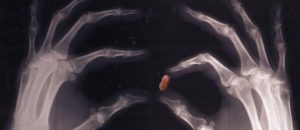The Instant Pot and Phytates
In a Facebook Vegan Instant Pot group, the problem of phytates came up in connection with cooking beans. The prevailing opinion seems to be that soaking reduces phytates in beans, and that’s a good thing because phytates are bad for you. Of course, that means we miss out on going from dried beans to perfectly cooked beans within an hour.
So I decided to to a bit of research. While it is true that phytates in grains and beans are reduced by soaking and even further reduced by germination, the reduction is not as great as the reduction in ordinary cooking and certainly not as great as the reduction in pressure cooking. The reduction of phytates in dry soy beans, for instance, is greater with pressure cooking than soaked soy beans cooked by ordinary means. [1. See, for instance, “Effect of Processing and Cooking Methods on the Chemical Composition, Sugars and Phytic Acid of Soybeans, http://article.sapub.org/10.5923.j.fph.20120201.03.html, accessed Nov 30, 2017]
But then, maybe we actually need some phytates in our bodies.  I always enjoy Dr Michael Greger’s well-researched presentations and recommend reading his take on Phytates in Beans: Anti-Nutrient or Anti-Cancer? He points out that phytates are not as bad as they are made out to be. We need phytates in our food to protect us against several lifestyle-related diseases. The bottom line:
I always enjoy Dr Michael Greger’s well-researched presentations and recommend reading his take on Phytates in Beans: Anti-Nutrient or Anti-Cancer? He points out that phytates are not as bad as they are made out to be. We need phytates in our food to protect us against several lifestyle-related diseases. The bottom line:
What are the potential side effects of phytates? Less heart disease, less diabetes, and fewer kidney stones. (Michael Greger, “Phytates in Beans: Anti-Nutrient or Anti-Cancer?”)[2. Also see “Phytates and phytic acid. Here’s what you need to know.” https://www.precisionnutrition.com/all-about-phytates-phytic-acid, accessed Nov 30, 2017.]
I t seems that a diet containing lots of phytates is also good for our bones. See Greger’s article on “How Beans Help Our Bones.” So we can happily take advantage of the Instant Pot’s ability to go from dry beans to perfectly cooked beans in less than 60 minutes and not damage our health one little bit. The Instant Pot does not destroy all the phytates in beans, and that’s actually a good thing, it turns out.
t seems that a diet containing lots of phytates is also good for our bones. See Greger’s article on “How Beans Help Our Bones.” So we can happily take advantage of the Instant Pot’s ability to go from dry beans to perfectly cooked beans in less than 60 minutes and not damage our health one little bit. The Instant Pot does not destroy all the phytates in beans, and that’s actually a good thing, it turns out.
